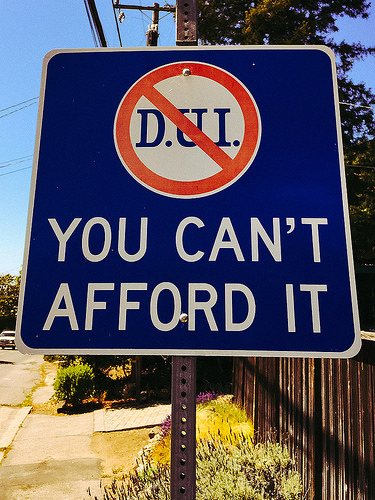Judgment of Acquittal – DUI: What happened to the prosecutions case?
 Recently our criminal defense law firm obtained a Judgment of Acquittal in a Drunk Driving (DUI) trial prior to the case going to a jury. While this type of situation doesn’t happen often, it is important to explain how it came about in our client’s criminal case in Philadelphia, Pennsylvania. A Judgment of Acquittal (JMA) is the result of defense motion to the court after the Commonwealth (i.e. the Prosecution) has rested (presented all of its evidence) in its case. The motion is made when the criminal defense lawyer believes that there isn’t a legally sufficient evidentiary basis on which the jury could return a guilty verdict.
Recently our criminal defense law firm obtained a Judgment of Acquittal in a Drunk Driving (DUI) trial prior to the case going to a jury. While this type of situation doesn’t happen often, it is important to explain how it came about in our client’s criminal case in Philadelphia, Pennsylvania. A Judgment of Acquittal (JMA) is the result of defense motion to the court after the Commonwealth (i.e. the Prosecution) has rested (presented all of its evidence) in its case. The motion is made when the criminal defense lawyer believes that there isn’t a legally sufficient evidentiary basis on which the jury could return a guilty verdict.
At a criminal trial, the judge decides all issues of law (admissibility of evidence, line of questioning) and the jury decides all issues of fact (weight of the evidence, credibility of witnesses, guilt). A JMA, however, asks the court acquit the defendant of the charge before it even gets to the jury. The defense can also make the same motion following the prosecution’s case in a judge alone trial (bench trial). The court will grant the motion if it believes that no “reasonable jury” or “fact finder” could find the person guilty of the charge based on the evidence presented.
In our law firm’s recent drunk driving criminal trial, the prosecution attempted to obtain a conviction under Section 3802(a)(1) which is the general impairment section of Pennsylvania’s drunk driving statute. This section doesn’t require the prosecution to present the accused’s Blood Alcohol Concentration (BAC) but only a police officer’s testimony that the defendant wasn’t fit to safely operate a motor vehicle on the road. The prosecution needed to establish this element along with the other element—Control. The element of Control is simply that the accused was driving the vehicle which in this case was clear. There are drunk driving cases, however, where control is a major issue. The prosecution’s case fell apart on the second element—impairment.
While the police officer testified that the driver’s eyes appeared bloodshot and his overall appearance “unsteady,” his testimony fell very short of establishing impairment. The officer didn’t provide any testimony about an odor of alcohol, slurred speech, or unsteady gait (walk). Further, the police officer didn’t perform any field sobriety tests which would have helped the prosecution’s case. Remember that the prosecution for this particular DUI charge didn’t need the results of any chemical tests (blood test or Breathalyzer.)
JMA’s aren’t about arguing what the prosecution has presented but rather what it hasn’t presented at trial. JMA’s aren’t about bad evidence but a lack of evidence which would present a finding of guilt. Your criminal defense lawyer must always look at this motion in a jury trial. Jurors aren’t typically trained in the law, aside from the very brief and often confusing instructions that they receive from the judge prior to deliberations. While the burden of proof isn’t always on the prosecution, jurors sometimes misunderstand this concept. They incorrectly believe that the defense must do something to prove innocence. The JMA will avoid the jury making the wrong decision because of some belief that the defense must do something to prove its case.
For more information on DUI defense strategies, I encourage you to read my monthly newsletter and check out my free download section.
Contact Our Criminal Defense Lawyers in PA & NJ
Please click here to contact our Philadelphia criminal defense lawyers. We offer free case reviews and serve the following areas in Pennsylvania and New Jersey, Atlantic City, Camden, Cherry Hill, Chester, Conshohocken, Doylestown, Media, Norristown, Philadelphi



